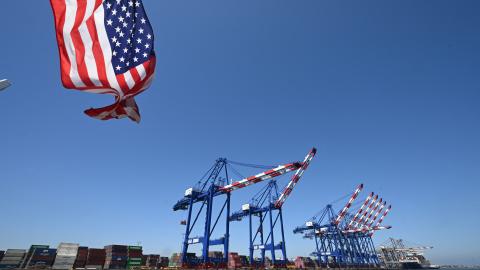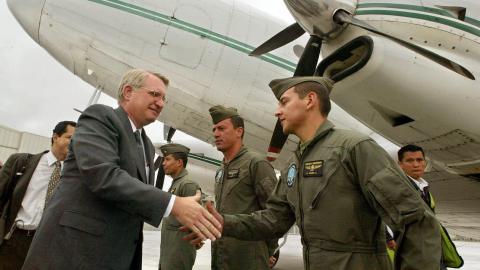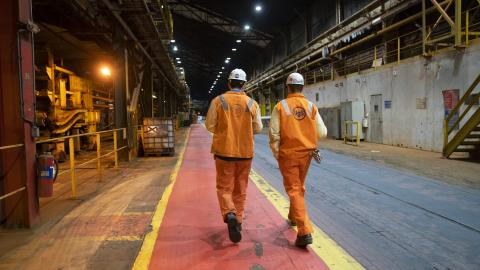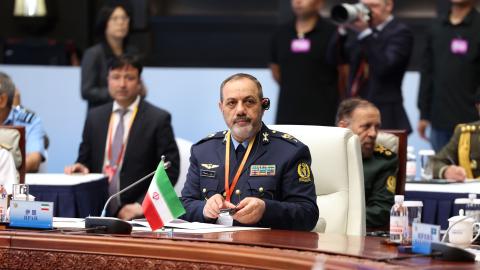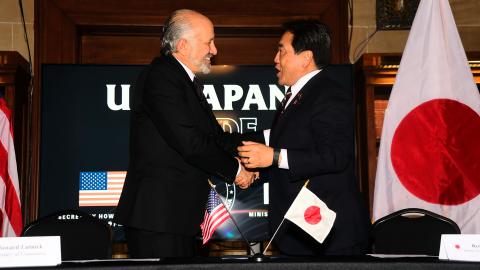To say that people in Latin America are sensitive about military coups would be an understatement. Due to the often tumultuous and bloody histories of their respective countries, they have a strong aversion to anything that looks like military interference in civilian politics. Recent events in Honduras have struck many Latin Americans as a return to the bad old days when power-hungry generals routinely dislodged elected officials and stomped on democracy.
Yet upon closer examination, the removal of Honduran president Manuel Zelaya bears very little resemblance to traditional Latin American military coups. Indeed, it was not really a "coup." Rather, it was a response to a leader who had trampled the law and attempted to hold an illegal referendum on constitutional reform. Zelaya's ouster was approved by Honduras's Congress, Supreme Court, Electoral Tribunal, attorney general, and national prosecutor.
Zelaya started this whole imbroglio when he ignored a Supreme Court ruling and tried to use thuggish mob tactics to impose his will on the Honduran political system. When the court told him that his proposed referendum was unconstitutional, Zelaya acted as if he were above the law. General Romeo Vásquez, boss of the Honduran armed forces, declined to participate in Zelaya's anti-democratic charade, and for that "offense" he was fired. The court objected to Vásquez's dismissal, at which point Zelaya and a gang of his supporters raided a military base to seize the referendum ballots. Press reports of armed Venezuelan and Nicaraguan agitators suggested the involvement of Hugo Chávez and Daniel Ortega in what was a gross power grab. Zelaya and his street gangs were poised to stage the vote when the president was detained by Honduran soldiers and flown to Costa Rica.
Many Latin Americans are troubled by the fact that Zelaya was arrested and exiled by military officers. The army's involvement was indeed symbolically damaging. But the Supreme Court had authorized the military to play this role.
"I feel bad about what happened," General Vásquez told the Miami Herald. "I tried very hard to counsel the president to find a legal way out of this. There was no way. Nobody is above the law." Vásquez added: "We felt that if he stayed here, worse things were going to happen and there would be bloodshed. He had already been acting above the law."
Let's be clear: Zelaya's illegal referendum was a transparent attack on democracy. It was part of his broader scheme to rewrite the Honduran constitution, lift presidential term limits, and extend his rule. These are the same tactics that have been used or proposed by populist leaders in Venezuela, Nicaragua, Bolivia, and Ecuador. All those countries have moved away from democracy and toward a more authoritarian style of governance. Venezuela is now a near-dictatorship, with President Chávez having demolished the independent media, corrupted the judiciary, and turned the legislature into a virtual rubberstamp.
While myriad foreign leaders have denounced Zelaya's removal, Chávez has been the most vociferous. Mind you, in the early 1990s Chávez was convicted and served jail time for leading an attempted coup in Venezuela. Today, his angry response and wild threats indicate just how much is at stake in Honduras. Zelaya was a close Venezuelan ally. His ouster represents a major defeat for the "Bolivarian revolution" that Chávez has promoted in countries across the region. If Honduras's democratic institutions prevail in their efforts to block Zelaya's return, they will have scored a landmark victory over Chavismo. Governments and politicians throughout Latin America will take notice. It may become more difficult for other Chávez acolytes to subvert democracy.
Since Zelaya left, Honduran lawmakers have been scrupulous about following the appropriate procedures. Indeed, both the legislature and the judiciary have upheld the rule of law and acted in accordance with the country's constitution. Lawmakers have appointed former congressional leader Roberto Micheletti as interim president. Micheletti has confirmed that national elections will take place as scheduled this November. In a conference call with reporters on Monday, Micheletti said that Honduran officials could not let Zelaya lead their country into "communism or socialism."
Nevertheless, foreign observers continue to protest. The hypocrisy of certain critics is astounding. Take José Miguel Insulza, secretary general of the Organization of American States (OAS). Insulza has fiercely condemned Zelaya's ouster, which he misleadingly calls an "old-fashioned coup," and vowed that Honduras will be suspended from the OAS if it fails to reinstate the former president within a 72-hour time frame. It's too bad that Insulza suffers from selective moral outrage: While he is now condemning Honduran officials for acting to safeguard their democracy, he has been utterly silent about genuine assaults on democracy in countries such as Venezuela, Nicaragua, Bolivia, and Ecuador.
Here are the important facts to remember about Honduras: Zelaya tried to hold an unconstitutional referendum. The Supreme Court rebuked him. Zelaya embraced mob tactics and launched his own coup against democracy. He deliberately and unambiguously broke the law. With judicial backing, the army moved to stop him. If you want to blame someone for what happened in Honduras, blame Zelaya.
